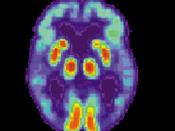Humanity is overwhelmed with countless ethical issues every day. One of the most controversial is the subject of cloning, with the overall question being, "To clone or not to clone?". Many doctors, politicians, religious people and others have been battling with this question, and the only way to decide which side to take is to look at both the good and bad sides of cloning.
There are many positive aspects of human and non-human cloning, especially since scientists discovered it to be a new way to heal humans. They believe that they may be able to treat heart attack patients by cloning their healthy heart cells and inserting them into the areas that have been damaged. There has also been a breakthrough with human stem cells, which can be grown to produce organs or tissues to repair damaged ones. Conditions such as Alzheimer's disease, diabetes, and other problems may be made curable by cloning. Infertile parents could easily have a baby, and not only that - but they could also have influence on the sex and other attributes of their future child.
On the other hand, there are also many negative aspects of cloning. For one thing, it can be perceived as a way of 'playing god'. The fact that infertile parents could have children seems beneficial at first glance. However, by doing this - humans are basically changing reproduction as we have always known it to be. To create different organs in order to help people live longer or more comfortably seems unnatural. Furthermore, studies have shown that these technologically produced products could increase some forms of cancer, limit the effectiveness of drugs, and cause deadly allergies.
The outcome of going against nature cannot be a good one. By cloning, we are...


